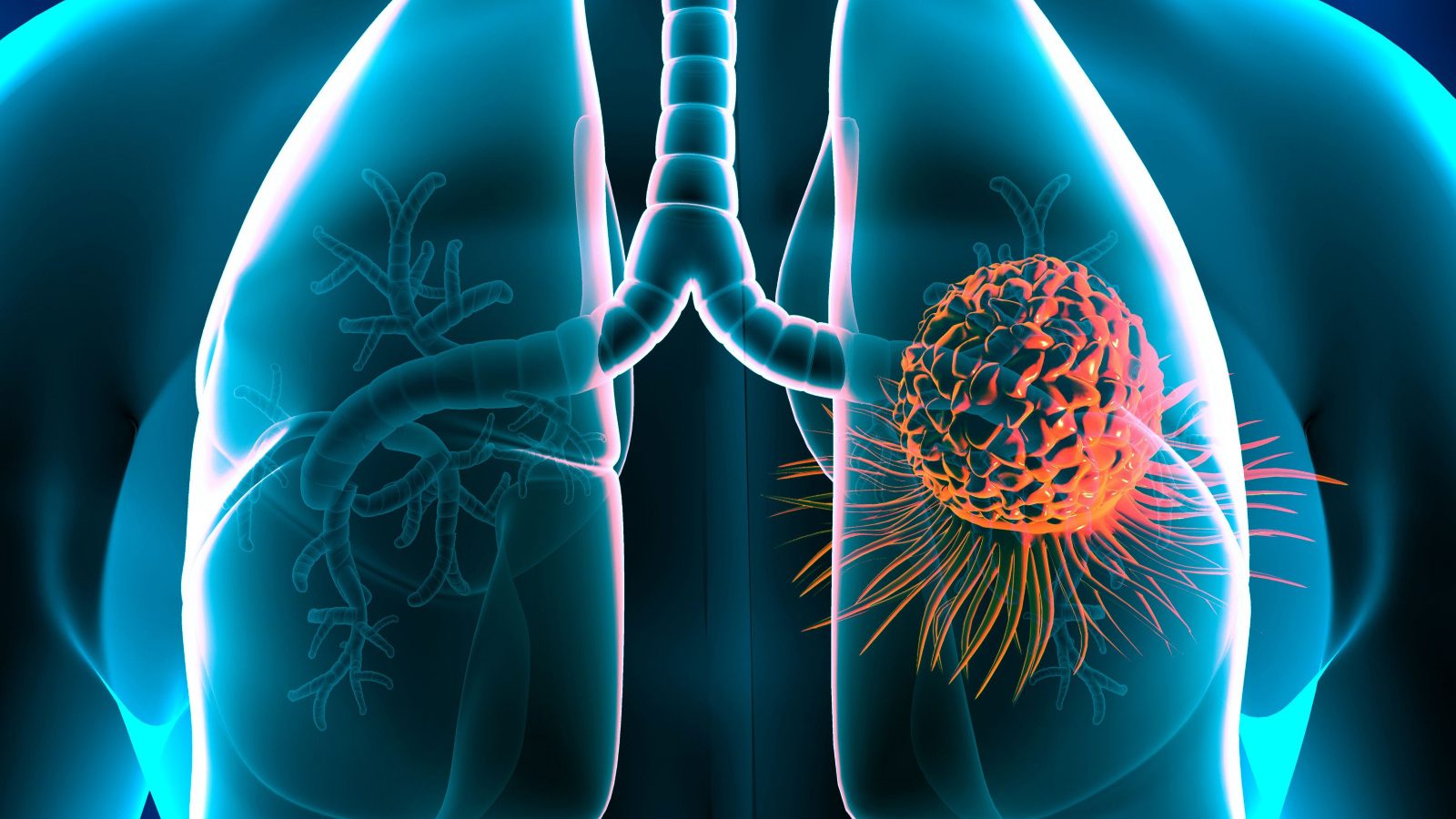Lung Cancer: Symptoms, Myths and Treatment

Non-small cell lung cancer (NSCLC) and small cell lung cancer are the two main subtypes of lung cancer (SCLC) (Representative image: Shutterstock)
Lung cancer is a type of cancer that starts in the lungs. It is the leading cause of cancer-related deaths worldwide.
Lung cancer is a type of cancer that starts in the lungs. It is the leading cause of cancer-related deaths worldwide. There are two main types of lung cancer: non-small cell lung cancer (NSCLC) and small cell lung cancer (SCLC).
“Lung cancer occurs in the lungs’ tissues, usually in the cells that line the air passages, and may spread to lymph nodes or other organs in the body. It is a leading cause of cancer death in both men and women,” says Dr. Vijay Gnanaguru, Consultant, Medical Oncologist, Billroth Hospitals, Chennai
Non-small cell lung cancer (NSCLC) and small cell lung cancer are the two main subtypes of lung cancer (SCLC). The most prevalent kind, NSCLC, grows and spreads more slowly than SCLC.
Symptoms
It is widely believed that cough is the primary sign of lung cancer, or that everyone diagnosed with lung cancer would experience shortness of breath. However, that’s not always the case. “In fact, there are several other signs and symptoms that can indicate lung cancer like chest pain, shortness of breath, hoarseness, and coughing up blood. Other symptoms can include weakness, fatigue, coughing up blood, and weight loss,” adds Dr Gnanaguru.
Risk factors for lung cancer includes smoking, exposure to second-hand smoke, and exposure to other harmful substances such as air pollution and radon. The risk of developing lung cancer increases with the length of time and amount of tobacco a person has smoked.
Myths
There are several myths associated with lung cancer as well that have been debunked by scientific research. “One myth is that only smokers get lung cancer. While smoking is the leading cause of lung cancer, it is not the only cause. People who have never smoked can also develop lung cancer due to exposure to second-hand smoke, air pollution, and other risk factors,” says Dr. Sewanti Limaye, Director, Medical & Precision Oncology, Sir H.N. Reliance Foundation Hospital, Mumbai.
Also Read: Veganuary Month: Everything You Need To Know About The Growing Trend
Another myth is that advanced lung cancer is not treatable. While lung cancer can be more difficult to treat than other types of cancer, advances in treatment have improved survival rates and many types of lung cancer can be treated successfully with targeted therapy or immunotherapy.
Treatment
There are several treatment options for lung cancer, including surgery, chemotherapy, radiation, targeted therapy, and Immunotherapy. “The type of treatment recommended will depend on the stage and type of lung cancer, as well as the overall health of the patient. Surgery is a common treatment for early-stage lung cancer and may involve removing the tumor or a portion of the lung affected by cancer. Chemotherapy uses drugs to kill cancer cells and mostly given intravenously. In radiation therapy, high-energy beams are used to kill cancer cells,” adds Dr Limaye.
Read all the Latest Lifestyle News here
For all the latest lifestyle News Click Here

